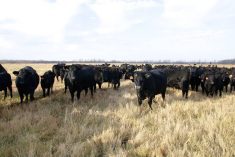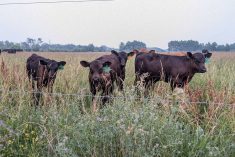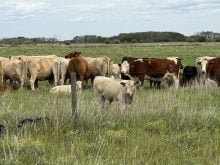Barley growers are heading back to court to fight a second round with the Canadian Wheat Board.
The Alberta Barley Commission filed an appeal May 9 against the recent decision dismissing its charter of rights challenge against the board.
The decision from justice Francis Muldoon disagreed with the claim by the commission, the Western Barley Growers Association and 21 farmers who argue the wheat board act contravenes farmers’ economic rights under the Charter of Rights and Freedoms.
Barley commission chair Brian Kriz, in the midst of seeding at his Rimbey farm, said the decision to appeal was partly based on independent opinions from two firms specializing in constitutional law. Both said they had a strong case and should appeal.
Read Also

Mixed results on new African swine fever vaccine
The new African swine fever vaccine still has issues, but also gave researchers insight into how virus strain impacts protection against the deadly pig disease.
“I’m pretty sure it will end up in the Supreme Court, especially if we win the next stage. That’s where law is really made,” said Kriz.
Muldoon said the farmers’ grievance with the board is a political problem that should be resolved by Parliament, not the courts.
In earlier interviews, Kriz said the commission disagrees. He said the charter is the instrument to resolve farmer differences with the wheat board even though it doesn’t guarantee economic freedoms or property rights.
“We’re of the opinion that it’s one man’s opinion and the judgment was one man’s opinion. I guess that’s why the system allows appeals and that’s why real law is made at the Supreme Court level,” he said.
In addition to their own case, the farmers are waiting for the Supreme Court of Canada decision on the Canadian Egg Marketing Agency appeal regarding two producers in the Northwest Territories who sold eggs outside the supply management agreement. The territories have never signed onto the quota system. The two producers sold their surplus eggs into northern Alberta and were taken to court and won the first two rounds.
“Depending how the judge writes her decision May 30 we’ll know at that point whether we’ve got a chance. A lot hinges on this case,” Kriz said.
The appeal process won’t be as expensive because they won’t have to present witnesses again or gather new material. There may also be intervenors involved on both sides, said Kriz.
The appeal is not expected to be heard until the fall.
The commission is hoping for farmer donations to help pay some of the legal costs this time around. Muldoon said the plaintiffs must pay all the legal costs from the first trial.
The case has cost the commission upwards of $1.4 million since it started four years ago.















